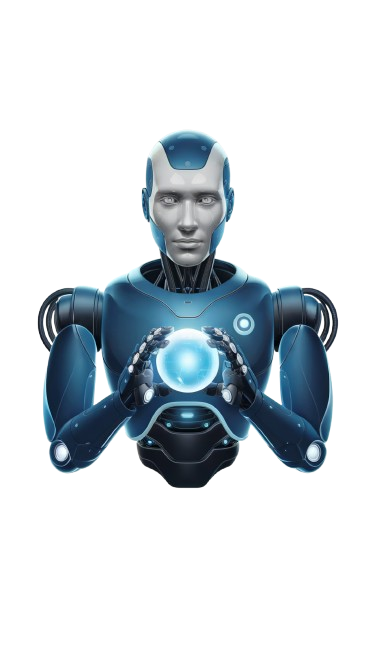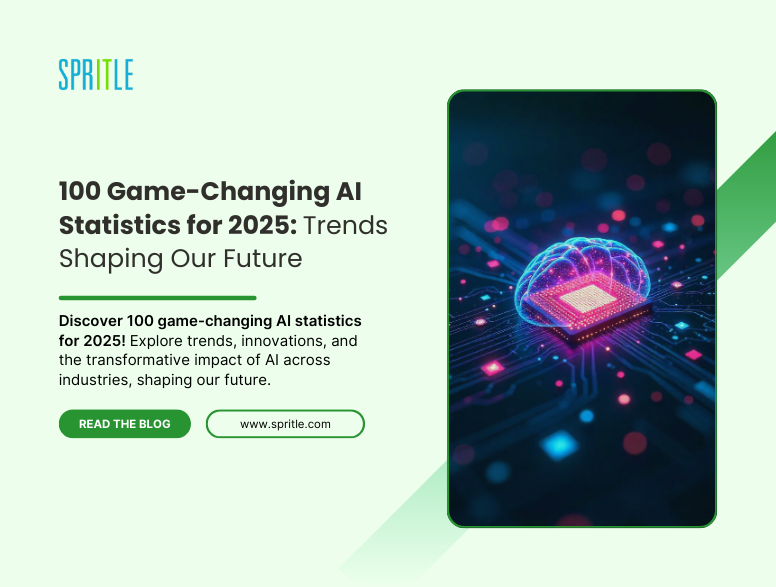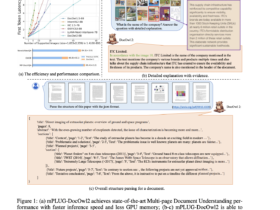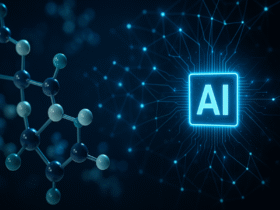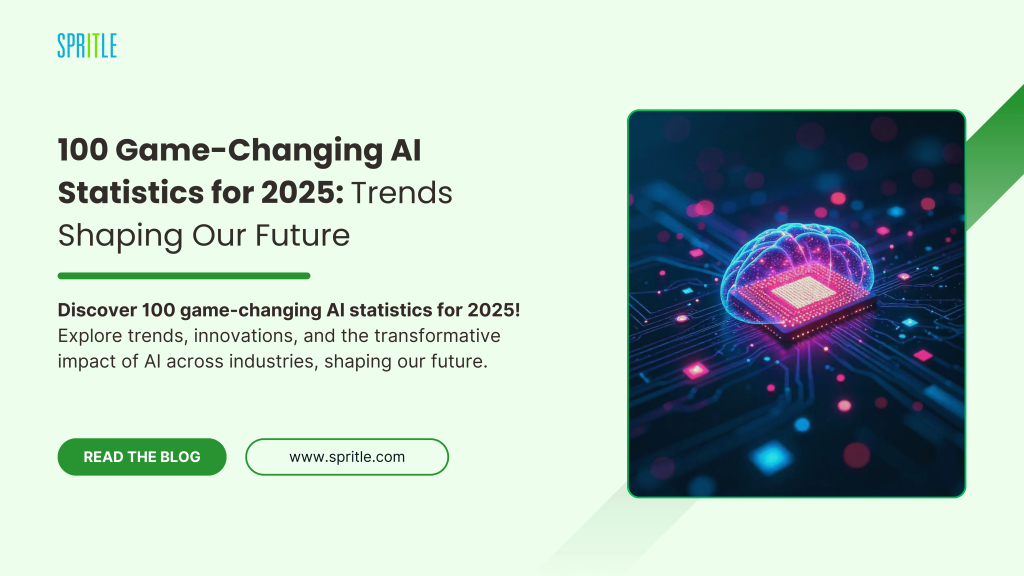
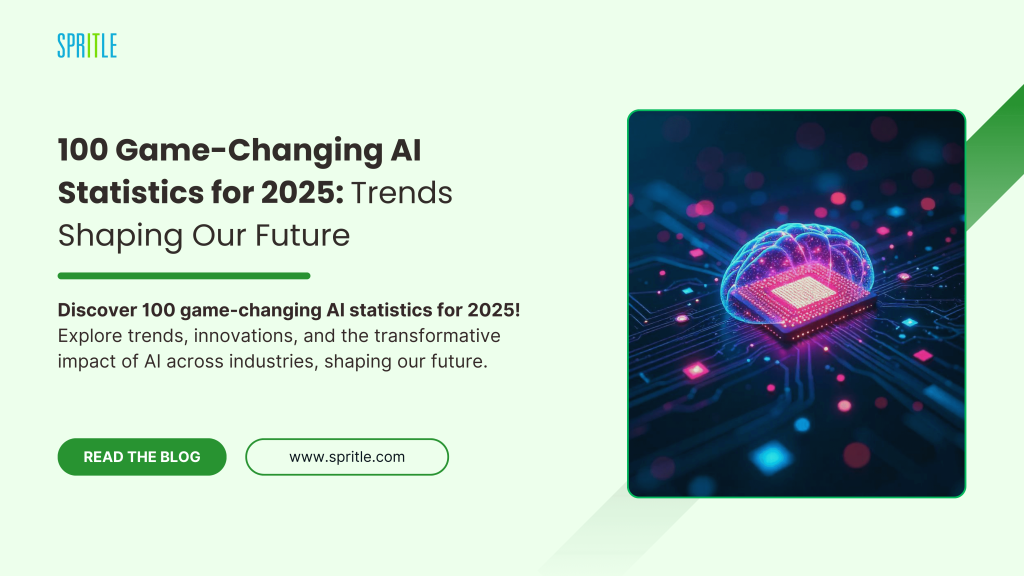
Hey AI Enthusiasts!
Artificial Intelligence (AI) is no longer a futuristic concept—it is a powerful force driving innovation and transformation across industries. As we approach 2025, the AI landscape continues to evolve, presenting new opportunities, challenges, and breakthroughs. To help businesses, professionals, and technology enthusiasts stay ahead, we have compiled 100 fresh AI statistics that showcase the advancements, impacts, and trends shaping the year 2025.
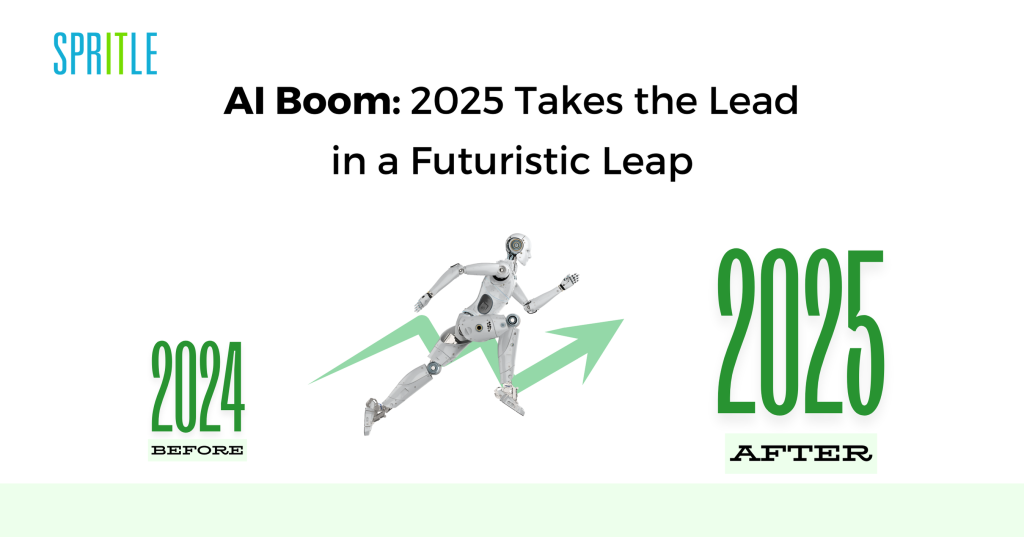
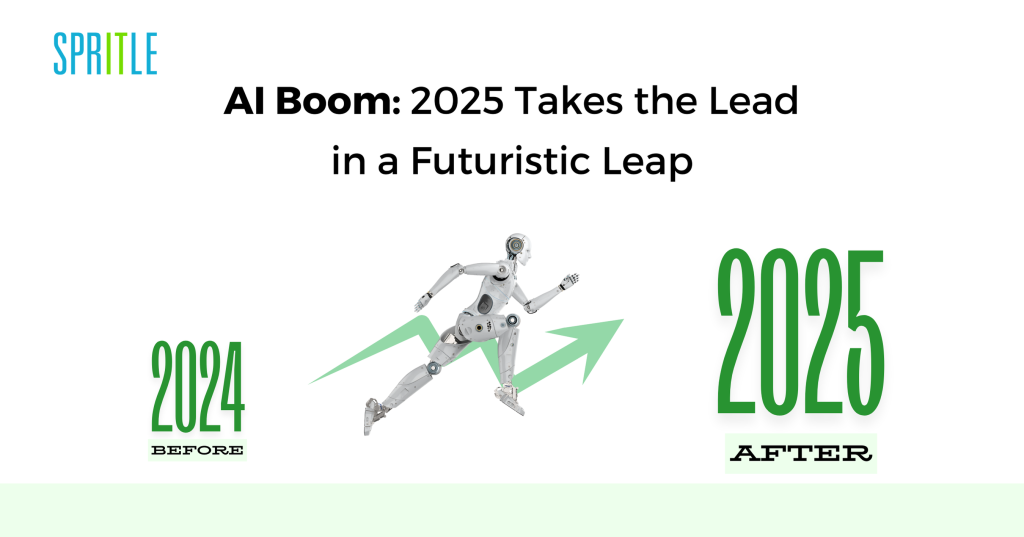
From market growth to workforce changes, here are the essential insights you need to know about AI in 2025.
AI Market and Growth Projections
The AI market is surging ahead, driving innovation across regions. With businesses, governments, and startups embracing AI, its transformative impact spans industries and reshapes global economies. 📈
- The global AI market is expected to reach $1.2 trillion by the end of 2025, growing at a CAGR of 26%.
- 85% of organizations worldwide will increase their AI investments in 2025.
- AI-driven solutions will contribute approximately $16 trillion to the global GDP by 2030.
- Spending on AI-related technologies will hit $350 billion globally in 2025.
- North America will dominate the AI market with a 36% share by 2025.
- The Asia-Pacific region will see 45% annual growth in AI adoption by 2025.
- AI adoption in Europe will generate over $200 billion in revenue for businesses.
- 40% of startups globally will integrate AI as their core technology.
- $130 billion will be invested in AI-focused research and development in 2025.
- Governments worldwide will increase AI investments to $110 billion annually.
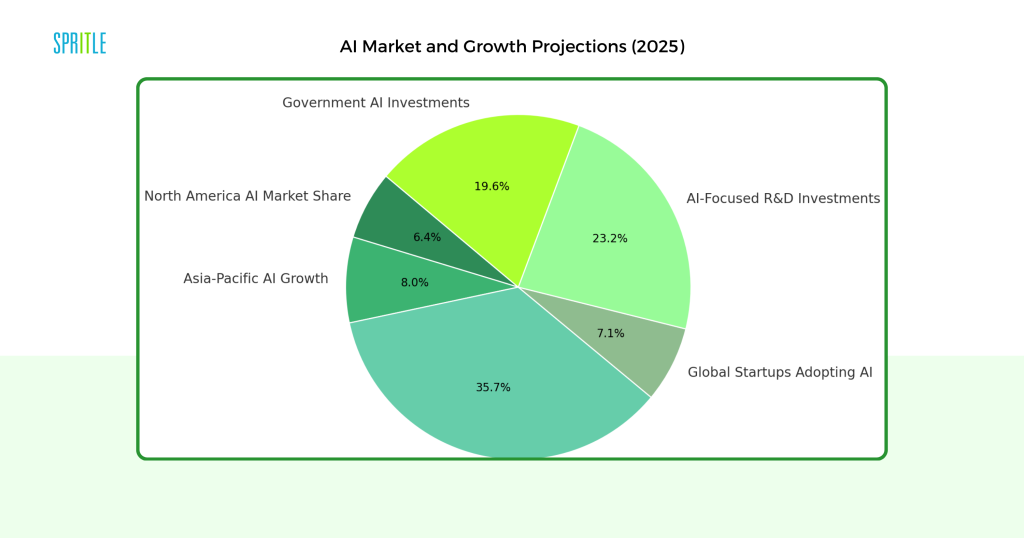
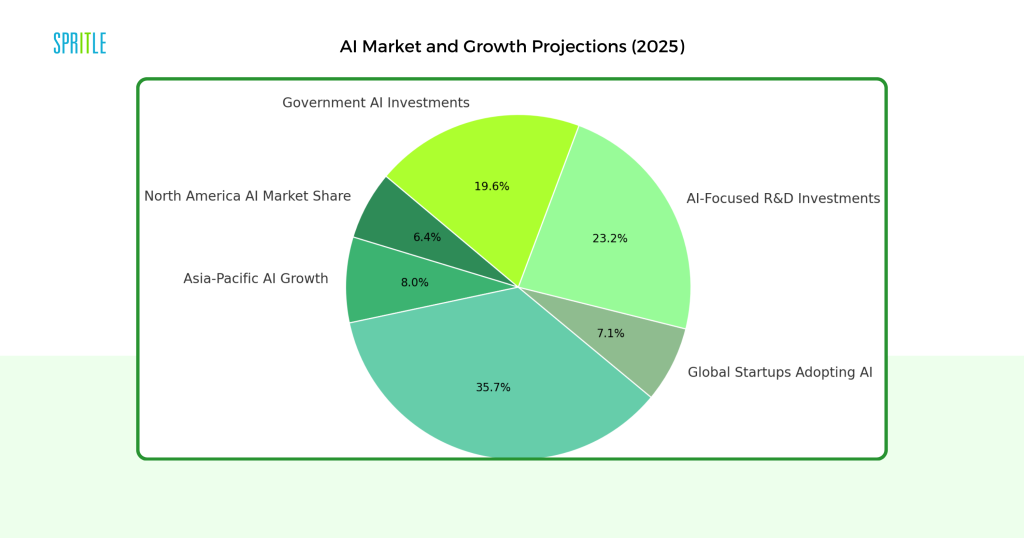
AI Growth Comparison: 2024 vs. 2025
The rapid pace of AI adoption has led to significant year-over-year growth. Here’s how AI statistics in 2025 compare with 2024 projections:
| Metric | 2024 | 2025 | Growth |
| Global AI Market Value | $1.02 trillion | $1.2 trillion | +18% |
| AI-Driven Global GDP Contribution | $14.3 trillion | $16 trillion | +12% |
| AI Research & Development Investments | $110 billion | $130 billion | +18% |
| AI Spending on Technology | $290 billion | $350 billion | +21% |
| Asia-Pacific AI Growth Rate | 40% | 45% | +5% |
| AI Adoption in Businesses | 70% | 75% | +5% |
| Generative AI Market Value | $180 billion | $220 billion | +22% |
| AI-Powered Customer Interactions | 55% | 65% | +10% |
| AI Adoption in Healthcare | $60 billion | $70 billion | +17% |
| AI-Powered Education Platforms | $20 billion | $25 billion | +25% |
| AI-Powered IoT Device Integration | 78% | 85% | +7% |
| AI Adoption in Cybersecurity Tools | 60% | 70% | +10% |
| AI-Enabled Robotics Growth | 35% | 40% | +5% |
| AI Job Automation | 22% | 25% | +3% |
| AI in Financial Services | 65% | 72% | +7% |
| AI in Retail Personalization | 50% | 60% | +10% |
| AI Adoption in Smart Cities | 30% | 40% | +10% |
| AI-Powered Fraud Detection | $30 billion saved | $40 billion saved | +33% |
| AI Integration in Edge Computing | 65% | 75% | +10% |
| AI-Powered Automation in Manufacturing | 45% | 55% | +10% |
This table demonstrates the continued acceleration of AI’s adoption and economic influence. Key sectors such as healthcare, cybersecurity, and generative AI are experiencing significant year-over-year growth.
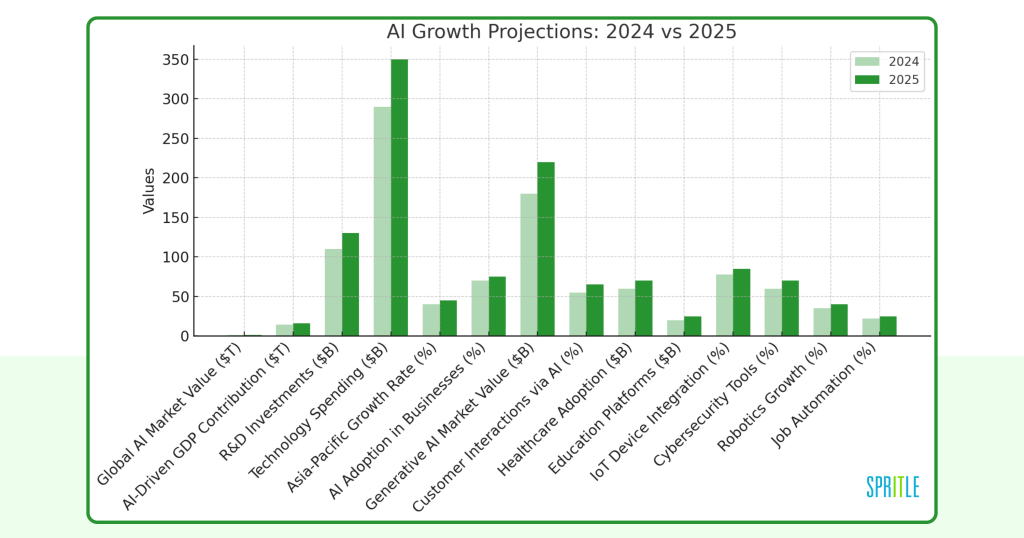
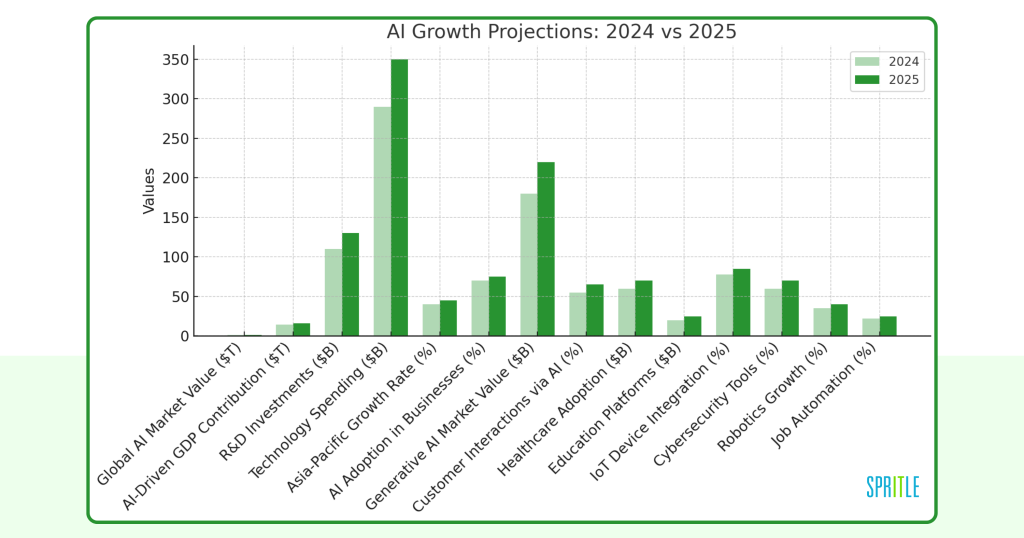
AI in Businesses and Enterprises
AI is revolutionizing businesses by enhancing efficiency, reducing costs, and enabling smarter decision-making. From automation to analytics, AI empowers enterprises to thrive in a dynamic future. 💻
- By 2025, 75% of businesses will integrate AI into their operations to improve efficiency.
- AI will help businesses reduce operational costs by 30% on average.
- 90% of enterprise applications will incorporate AI functionality by the end of 2025.
- AI-driven insights will increase business decision-making accuracy by 60%.
- By 2025, 70% of businesses will use AI-powered analytics for strategic planning.
- Companies using AI for marketing will see a 40% increase in ROI.
- AI adoption in supply chain management will enhance efficiency by 45%.
- AI-powered chatbots will manage 65% of customer service interactions by 2025.
- 60% of businesses will implement AI-driven cybersecurity solutions.
- AI-enabled tools will improve sales forecasts by 55% across industries.
- AI-driven automation will handle 30% of routine administrative tasks in businesses.
- By 2025, 80% of enterprise executives will rely on AI for real-time decision-making.
- AI implementation will reduce human error in business processes by 50%.
- AI-driven ERP systems will improve enterprise resource allocation by 40%.
- AI will identify and optimize cost-saving opportunities for 70% of companies.
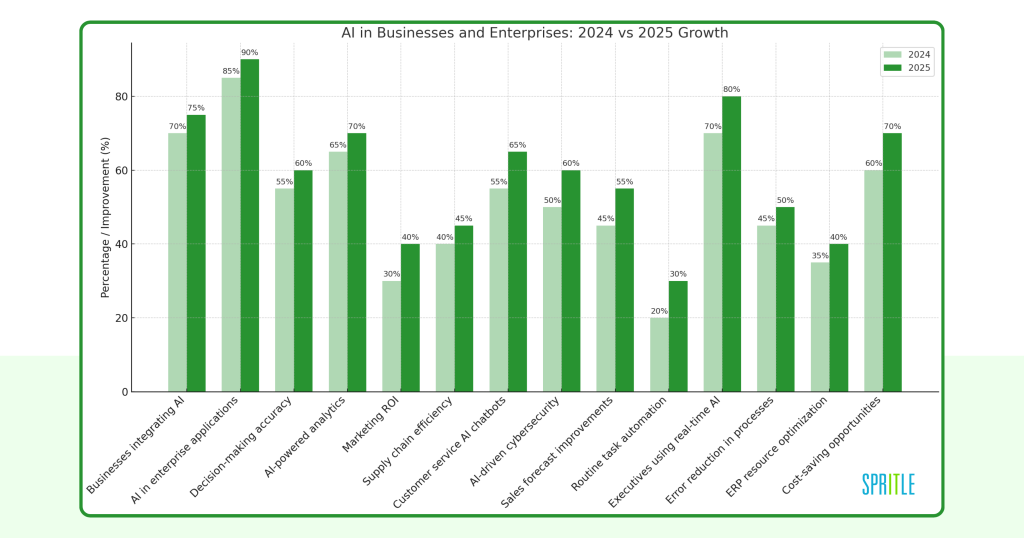
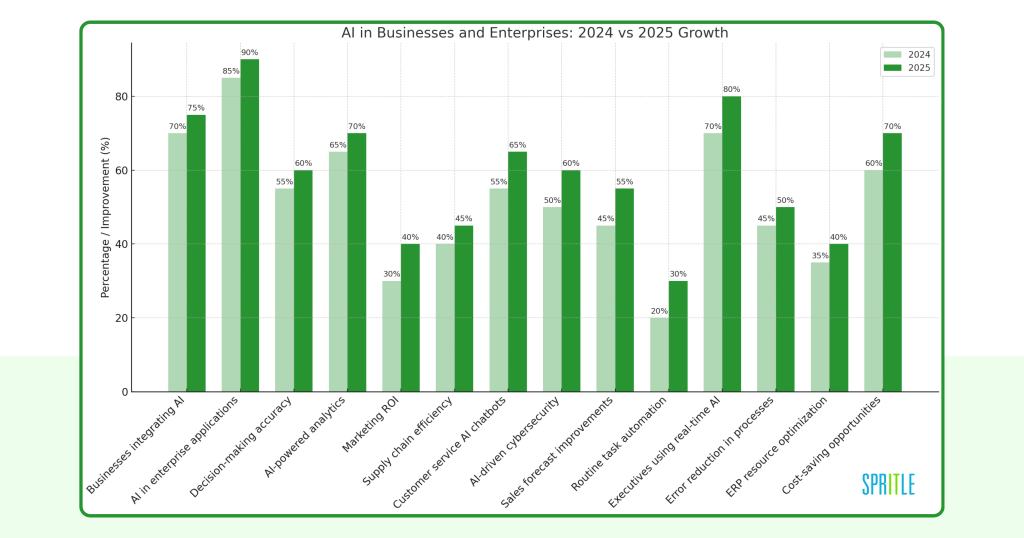
Generative AI Trends
Generative AI Trends are redefining industries with innovative solutions, automating content creation, enhancing personalization, and revolutionizing workflows for a smarter future. 🤖
- The generative AI market will grow to $220 billion by 2025.
- 75% of enterprises will integrate generative AI into product development processes.
- Generative AI will create 50% of all marketing and digital content.
- By 2025, 40% of programming tasks will be performed by generative AI tools.
- Generative AI adoption will shorten software development cycles by 35%.
- AI-powered content creation tools will save businesses 30% in production costs.
- AI-generated video will represent 60% of all online video content.
- By 2025, generative AI will create personalized education content for 70% of students.
- AI in creative industries will increase output efficiency by 50%.
- Generative AI will streamline 80% of product design workflows in 2025.
- Generative AI will optimize code debugging, reducing software errors by 40%.
- AI-generated 3D models will improve prototyping workflows by 45%.
- By 2025, generative AI will write 50% of AI-generated text and marketing materials.
- AI tools will reduce data processing time in content creation by 55%.
- Generative AI will automate 25% of social media content for businesses.
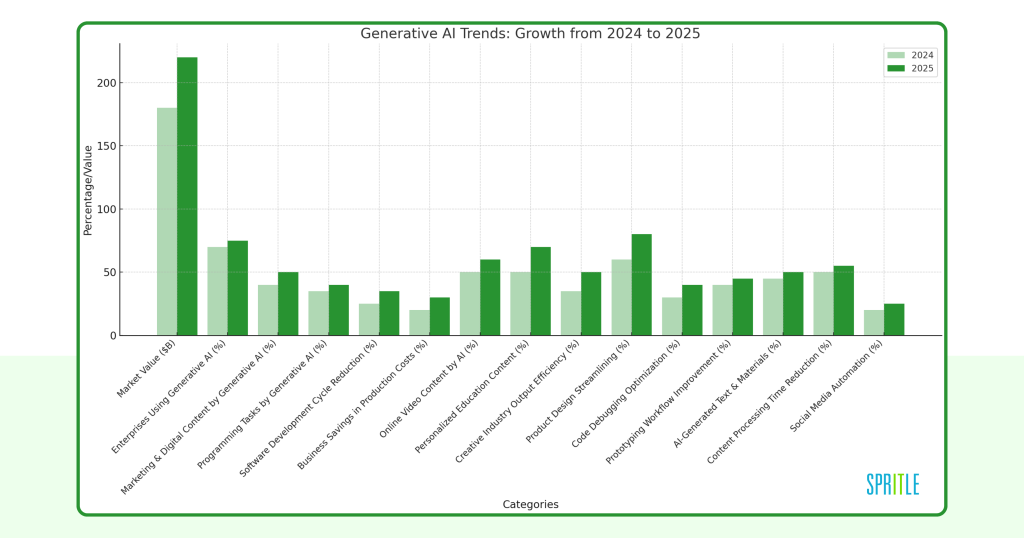
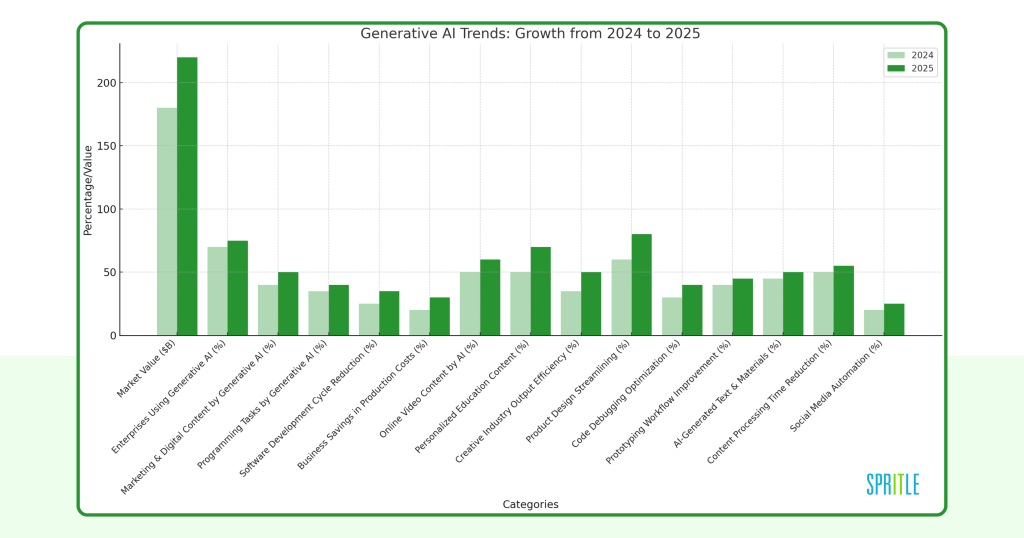
AI in Healthcare
AI is reshaping healthcare, driving accurate diagnostics, personalized treatments, and real-time monitoring. From telemedicine to robotic surgeries, it’s revolutionizing patient outcomes. 👩⚕️
- AI-driven healthcare solutions will reach a market value of $70 billion by 2025.
- 85% of hospitals will adopt AI for diagnostics and treatment planning.
- AI will assist in diagnosing 95% of medical imaging scans with higher accuracy.
- The use of AI in drug discovery will reduce development timelines by 50%.
- AI will predict disease outbreaks with 90% accuracy by analyzing global data.
- By 2025, AI-powered wearables will monitor the health of 80% of patients in real time.
- AI virtual assistants will handle 50% of telemedicine appointments.
- AI-powered precision medicine will offer tailored treatment plans for 70% of patients.
- AI tools will reduce hospital readmission rates by 35%.
- By 2025, AI will enable robot-assisted surgeries with 99% precision.
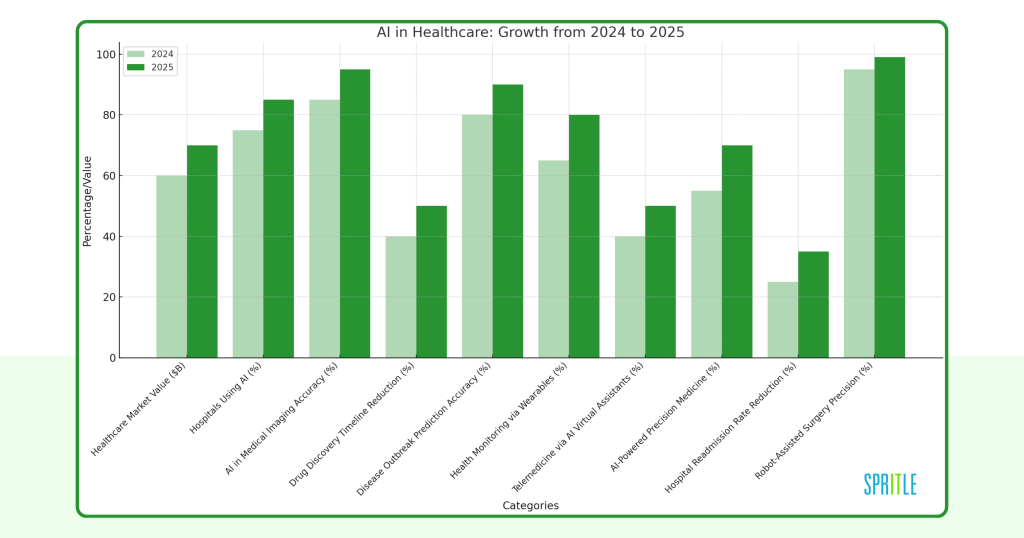
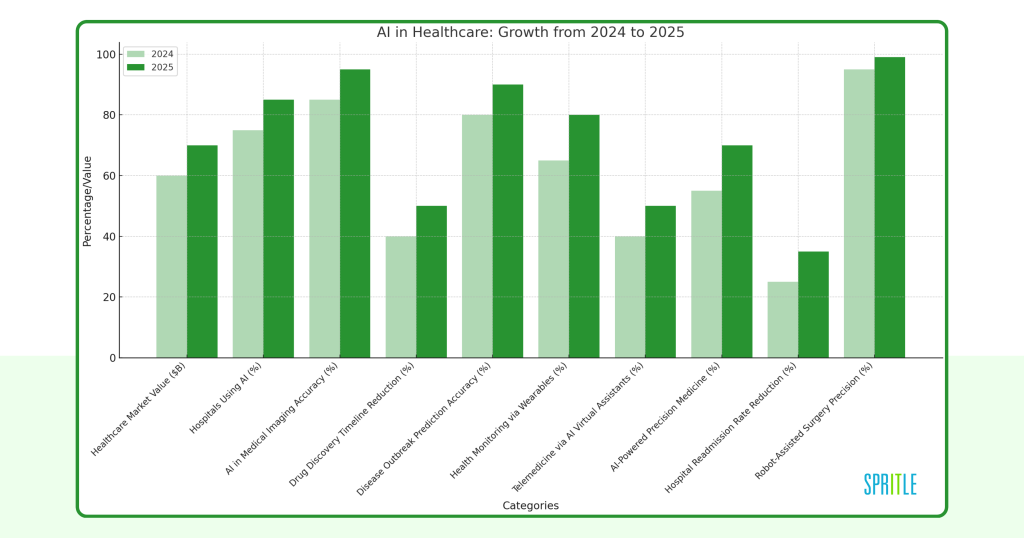
AI in Education
AI is redefining education, enabling personalized learning, automating tasks, enhancing engagement, and bridging gaps in access. It empowers educators and transforms learning for all students. 📚
- 60% of educational institutions will adopt AI-powered personalized learning platforms.
- AI tools will automate 45% of administrative tasks in schools and universities.
- By 2025, AI will improve student engagement rates by 50%.
- AI-powered virtual tutors will assist 55% of students worldwide.
- Adaptive learning systems will enhance academic performance by 40%.
- AI-driven tools will automate grading for 70% of assignments and tests.
- AI will improve access to education for 30% more students in remote areas.
- AI will identify and support learning disabilities in 90% of cases.
- 50% of teachers will use AI for lesson planning and curriculum design.
- AI tools will enhance remote learning outcomes by 45%.
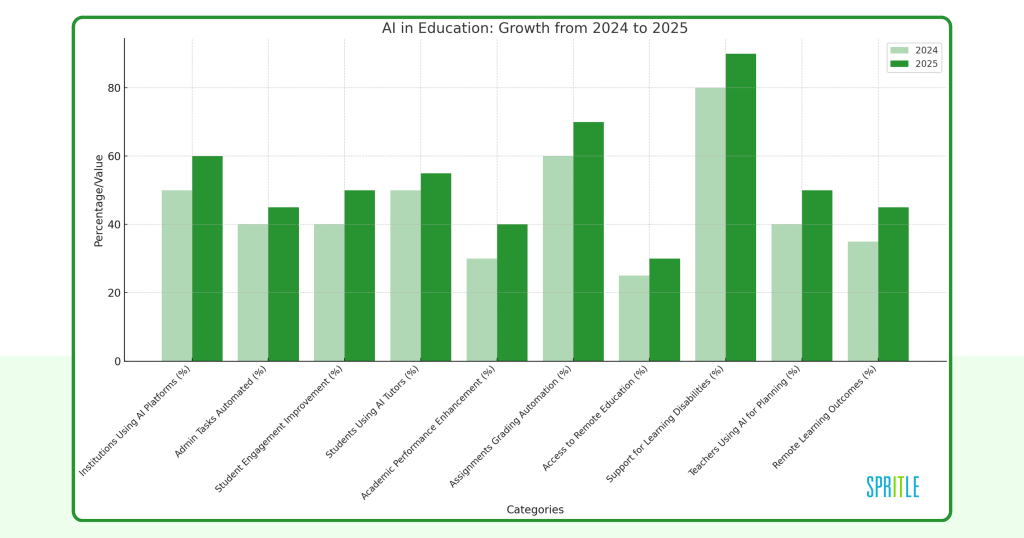
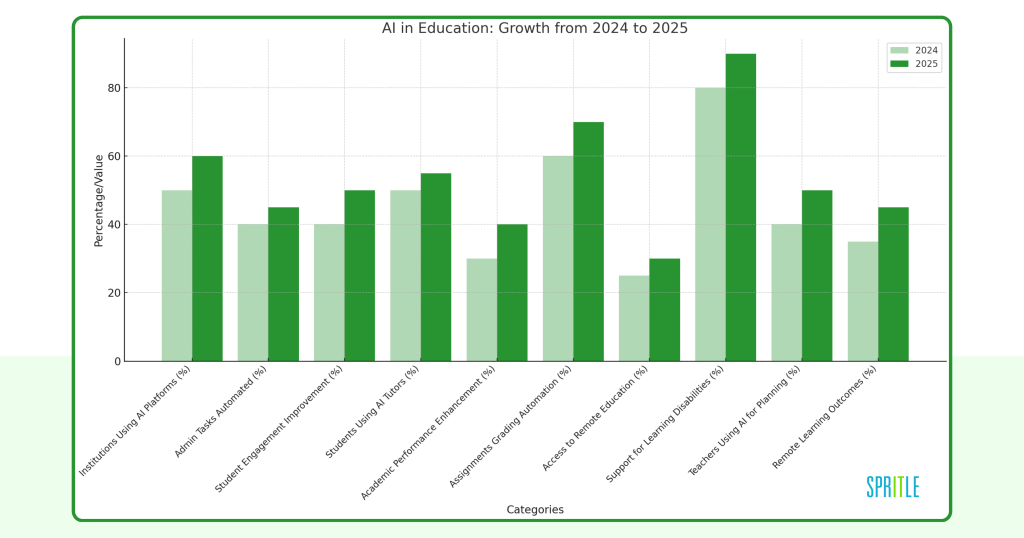
AI in Energy and Sustainability
AI is revolutionizing energy and sustainability by optimizing grids, boosting renewable adoption, cutting emissions, and enhancing efficiency in water, waste, and urban management. A greener future awaits! 🌱
- AI will optimize energy grids, reducing energy waste by 25%.
- AI-driven systems will accelerate renewable energy adoption by 40%.
- AI will reduce carbon emissions in urban areas by 15%.
- 70% of energy companies will use AI for predictive maintenance in 2025.
- AI will improve wind and solar energy efficiency by 30%.
- AI-powered smart cities will reduce overall energy consumption by 20%.
- By 2025, AI tools will monitor and improve water usage efficiency by 30%.
- AI will automate waste management processes, increasing recycling rates by 40%.
- AI will detect and prevent deforestation in 80% of monitored forests.
- By 2025, AI will contribute to achieving 60% of UN sustainability goals.
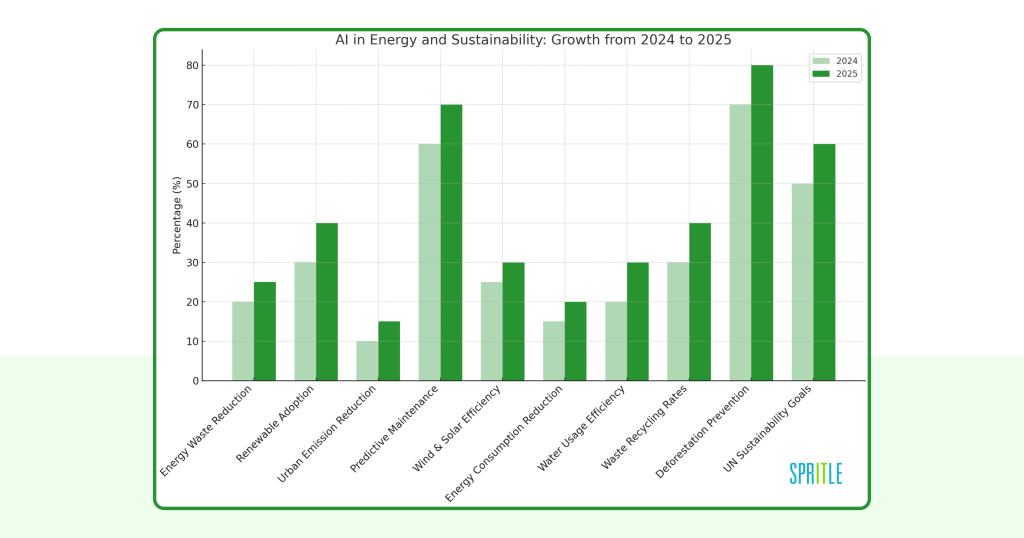
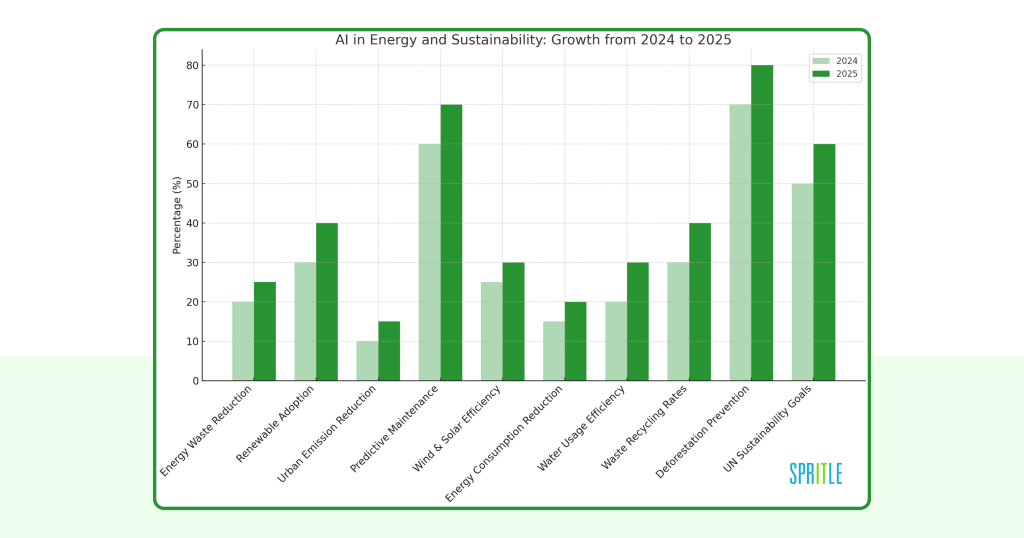
AI in Agriculture
AI is revolutionizing agriculture by enabling precision farming, automating harvesting, optimizing resources, and improving supply chains. It’s making farming smarter, sustainable, and efficient. 🌾
- AI-powered precision farming will increase crop yields by 30%.
- AI-based drones will monitor 70% of agricultural lands for crop health.
- Smart irrigation systems powered by AI will reduce water usage by 25%.
- AI will improve food supply chain efficiency, reducing waste by 20%.
- AI-driven weather prediction systems will improve accuracy by 40%.
- By 2025, 60% of farms will use AI for automated harvesting.
- AI tools will detect pests and plant diseases with 90% accuracy.
- AI will help farmers optimize fertilizer usage, reducing costs by 20%.
- Autonomous tractors powered by AI will manage 50% of large-scale farming operations.
- AI in agriculture will reduce operational costs by 15%.
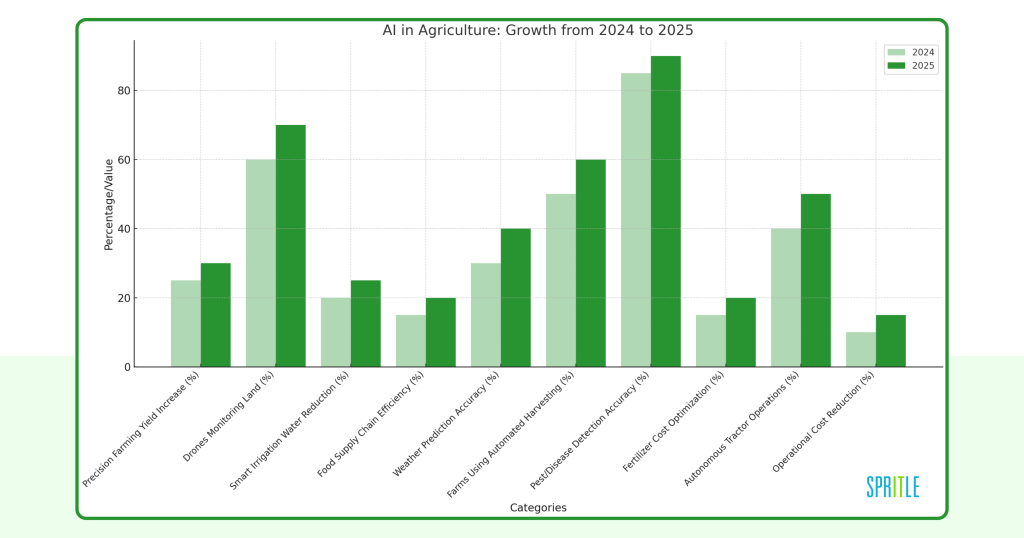
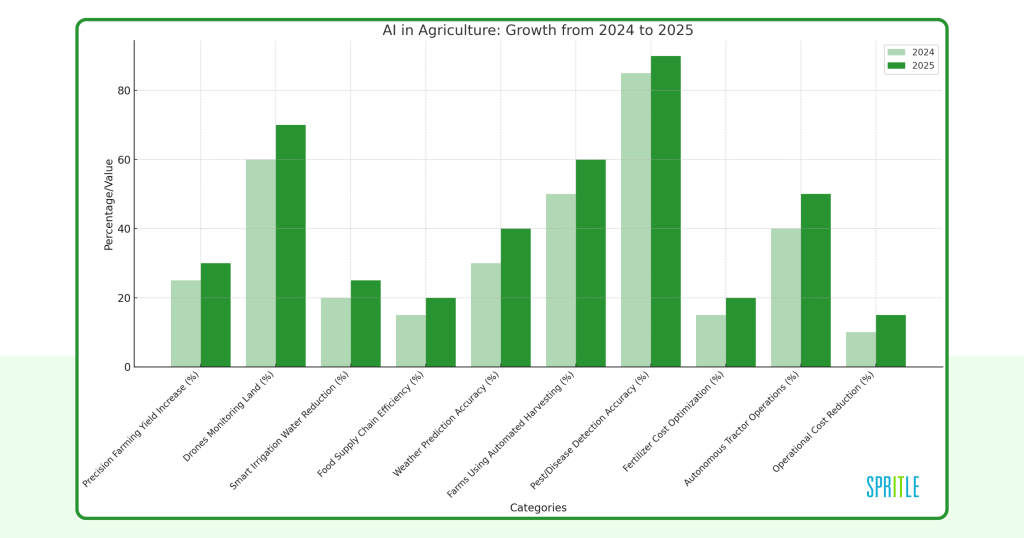
AI in Cybersecurity
AI is crafting a smarter cybersecurity landscape, enabling systems to predict threats, enhance digital safeguards, and deliver advanced, adaptive defenses with unmatched efficiency. 🔐
- AI will detect and respond to 95% of cyberattacks in real-time by 2025.
- 70% of businesses will use AI-driven tools for threat analysis and mitigation.
- AI tools will reduce cybersecurity breaches by 50%.
- AI-driven authentication systems will secure 80% of enterprise networks.
- AI-powered risk management will reduce data leaks by 60%.
- AI-enhanced encryption technologies will protect 90% of digital communications.
- AI systems will automate 75% of cybersecurity incident response tasks.
- AI-powered tools will block 80% of phishing attempts.
- By 2025, 65% of organizations will rely on AI for compliance monitoring.
- AI in cybersecurity will achieve a market value of $50 billion.
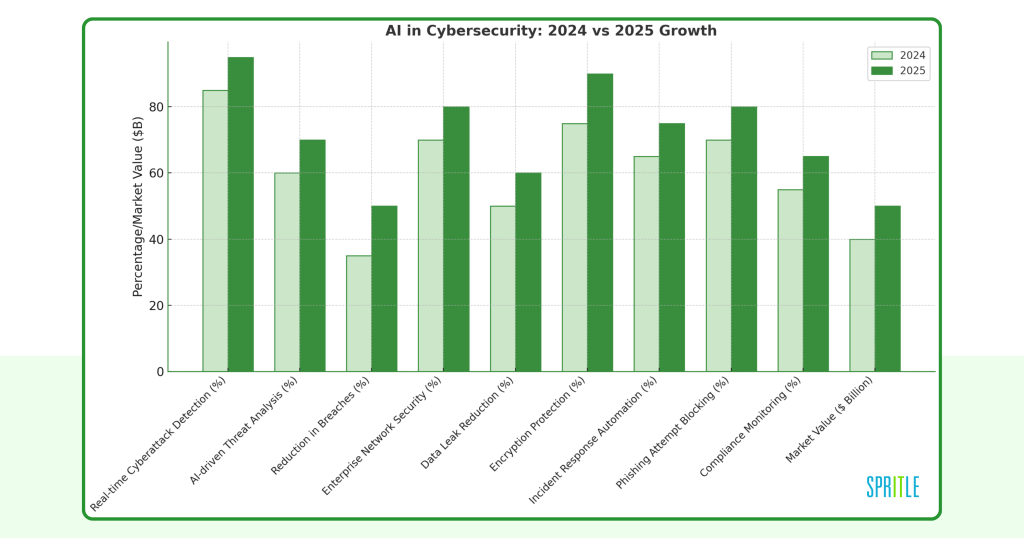
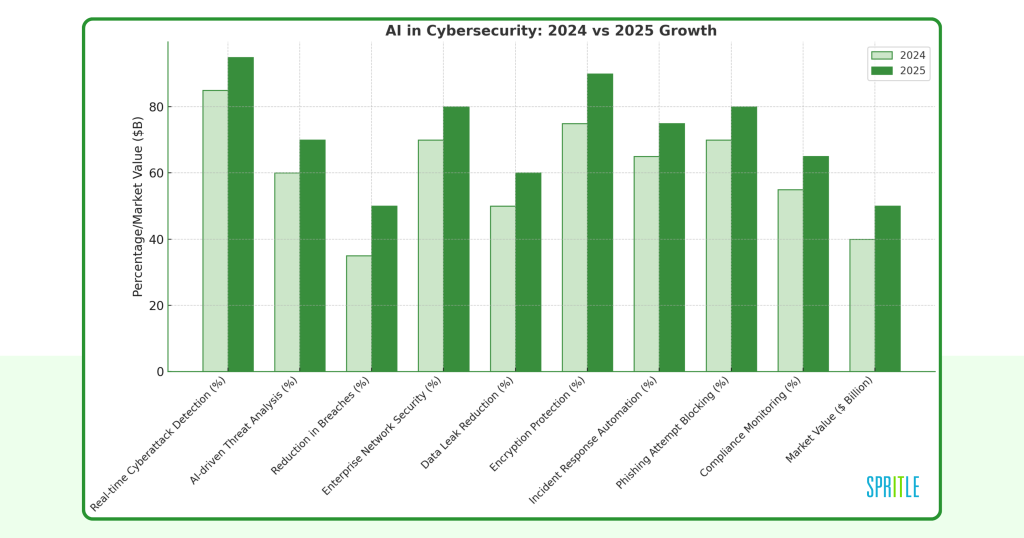
AI for Consumers
AI is reimagining daily life, enabling smart devices, personalized experiences, and seamless interactions, shaping a future of convenience, innovation, and intelligent living. 🛍️
- By 2025, 75% of households will use AI-powered smart devices.
- Voice assistants will handle 90% of voice commands for consumer electronics.
- AI-powered personalization will improve user satisfaction rates by 60%.
- AI-driven e-commerce platforms will increase sales conversion rates by 35%.
- AI tools will power 70% of video streaming content recommendations.
- AI in smart homes will reduce energy costs by 20%.
- AI-powered virtual shopping assistants will increase customer satisfaction by 50%.
- Autonomous vehicles powered by AI will account for 15% of car sales.
- AI-driven wearables will monitor the fitness and health of 80% of users.
- AI-powered chatbots will manage 65% of consumer inquiries for e-commerce platforms.
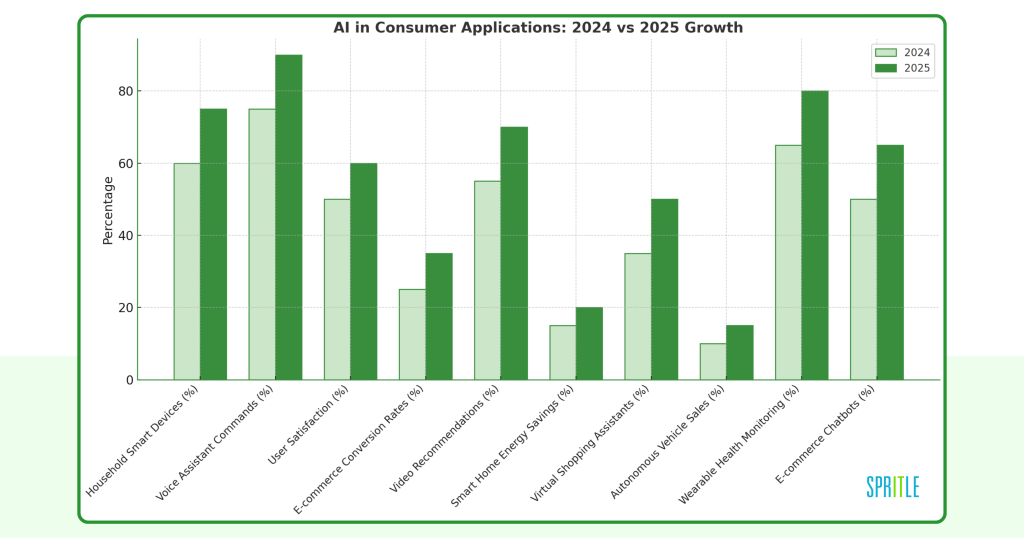
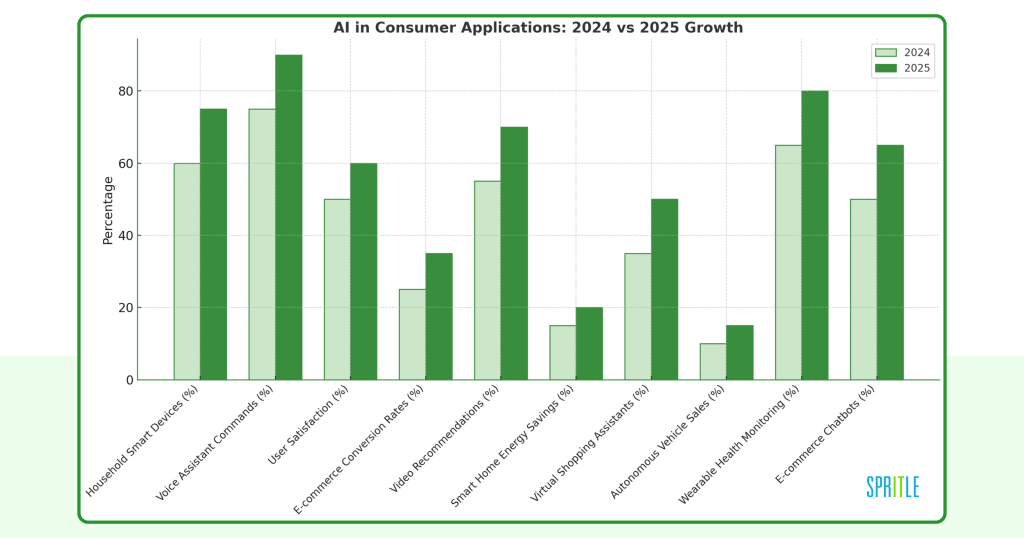
Final Thoughts
Artificial Intelligence continues to transform industries, optimize workflows, and enhance everyday life. These 100 AI statistics for 2025 highlight the rapid adoption, increasing investment, and growing influence of AI across all sectors. As AI becomes an integral part of businesses, education, healthcare, sustainability, and consumer life, staying informed and adaptable is crucial.
The AI-driven future is here—embrace the opportunities and advancements to thrive in 2025 and beyond!
For Spritle AI development services, consider scheduling a call to explore tailored solutions.
AI statistics sources : Gartner McKinsey Global Institute Deloitte Insights Forrester Research IDC Statista PwC OECD AI Policy Observatory World Economic Forum Reports Global AI Index by Tortoise Media Google AI Research Microsoft Research OpenAI Publications IBM Research Amazon Science

